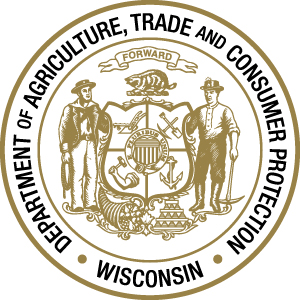Resource Details
Education & Schools, Workforce
WI Meat Talent Development Program
In January 2022, Governor Evers announced he is providing up to $5 million in American Rescue Plan Act (ARPA) funding for meat talent development programming. This funding will be used to attract students to meat careers, provide financial support to students in Wisconsin meat processing training programs, support program development, and connect the meat processing industry with potential employees. DATCP will work cooperatively with stakeholders and the industry to implement a program that strengthens Wisconsin's meat processing supply chain and workforce.
Programs include:
1. Meat Industry High School Curriculum — a new meat industry curriculum for Wisconsin agricultural education programs (in partnership with UW-River Falls)
2. Humane Handling Institute — provides hands-on training for meat industry workers in humane pre-slaughter handling, transport, stunning, and equipment maintenance (in partnership with UW-River Falls)
3. HACCP Training Reimbursement — tuition reimbursement for Hazard Analysis and Critical Control Point (HACCP) trainings held at the University of Wisconsin - Madison Meat Science and Animal Biologics Discovery Center
Related Resources
Wisconsin Cooperative Development Grant
Wisconsin Economic Development Corporation
Arts & Culture, Child Care, Energy, Forestry & Paper, Native Peoples, Transportation, Workforce
The Wisconsin Economic Development Corporation (WEDC) is offering grants to support the development of new and existing cooperatives in Wisconsin, with a goal of fostering the success of current and future cooperatives by supporting planning and exploratory research in advance of making a large investment.
Wisconsin Coastal Grants Program
Wisconsin Department of Administration
Education & Schools, Parks & Outdoor Recreation, Sustainability
Wisconsin Coastal Management Program (WCMP) and its grants are dedicated to preserving and improving access to the natural and historic resources of Wisconsin's Great Lakes coasts.
WI Bureau of Environmental and Occupational Health (BEOH)
Wisconsin Department of Health Services
Health & Mental Health, Sustainability, Workforce
The Bureau promotes public health through statewide programs to increase public awareness of environmental and occupational health hazards and disease and works to prevent and control exposure to environmental and occupational health hazards.




